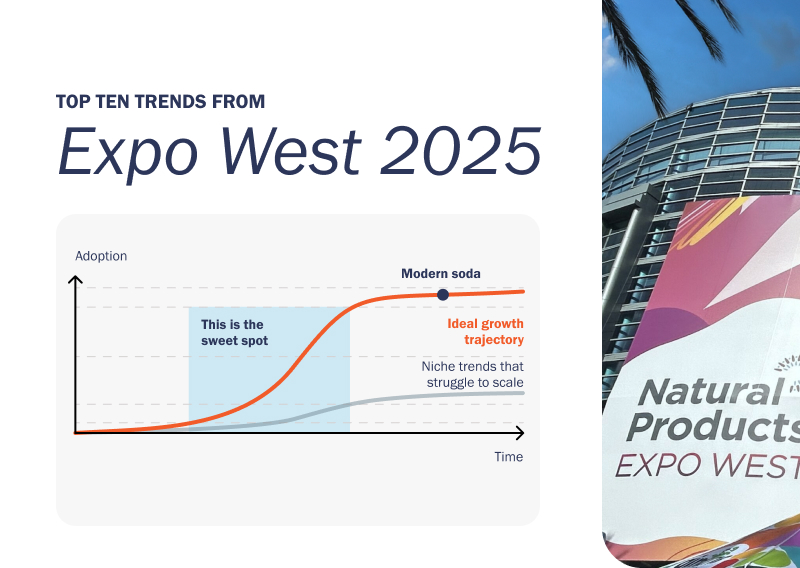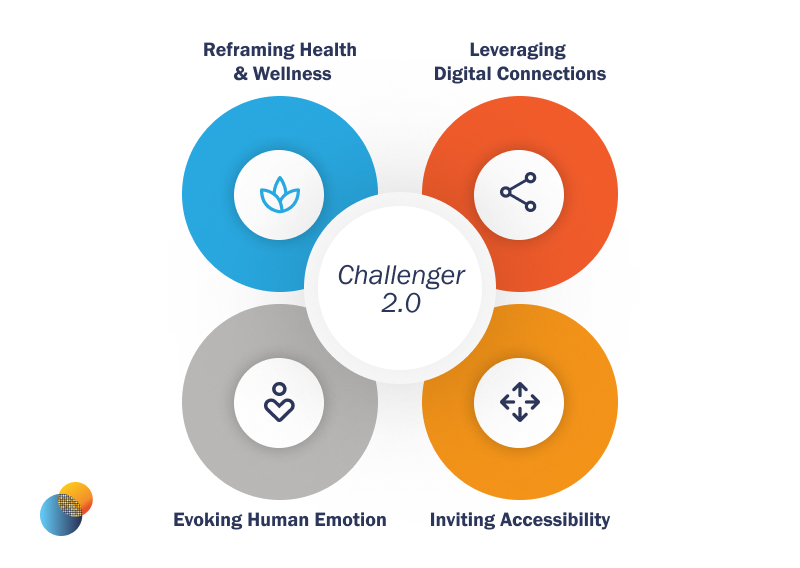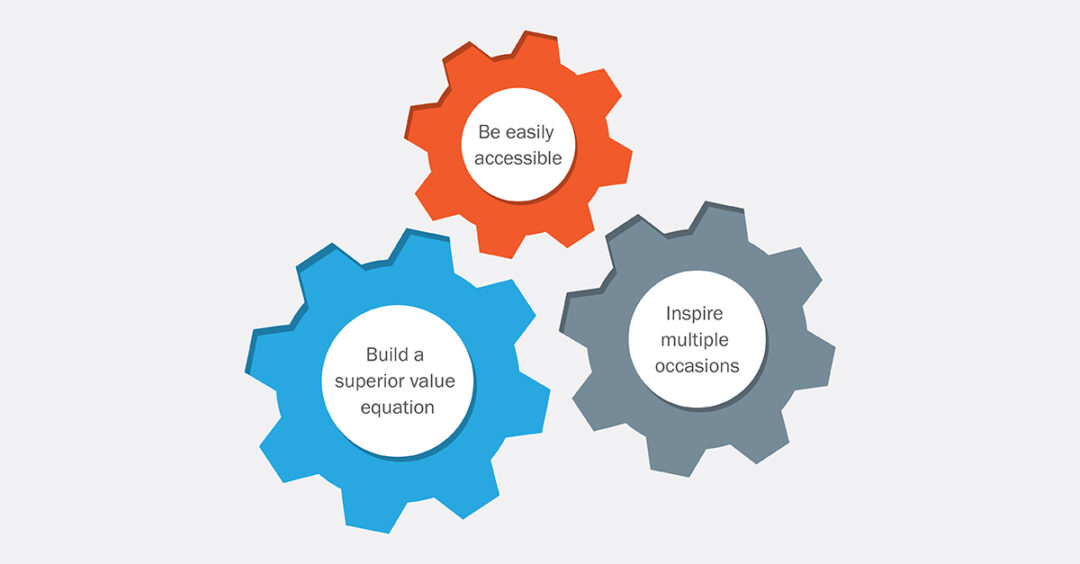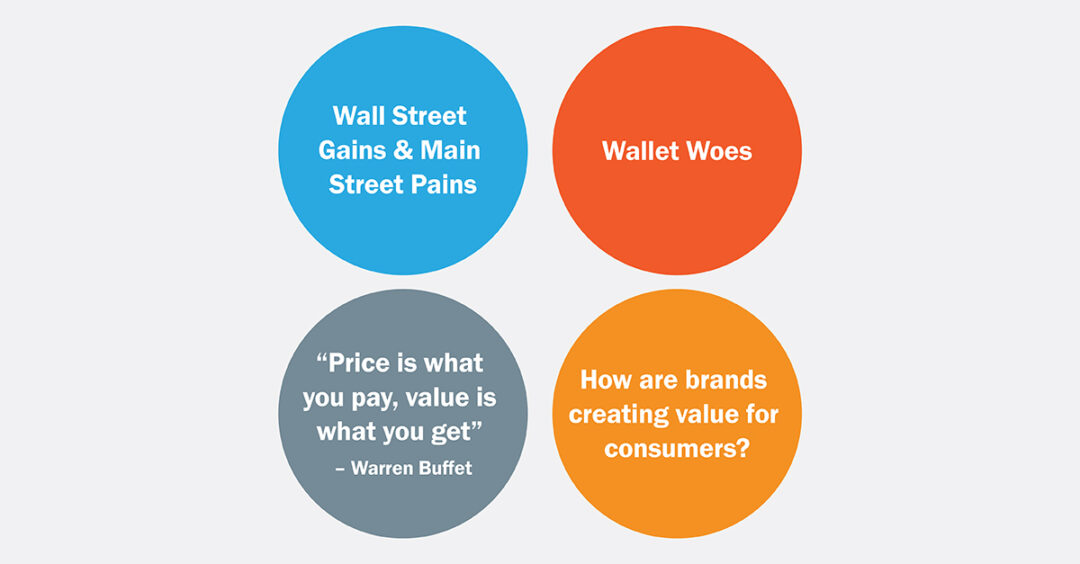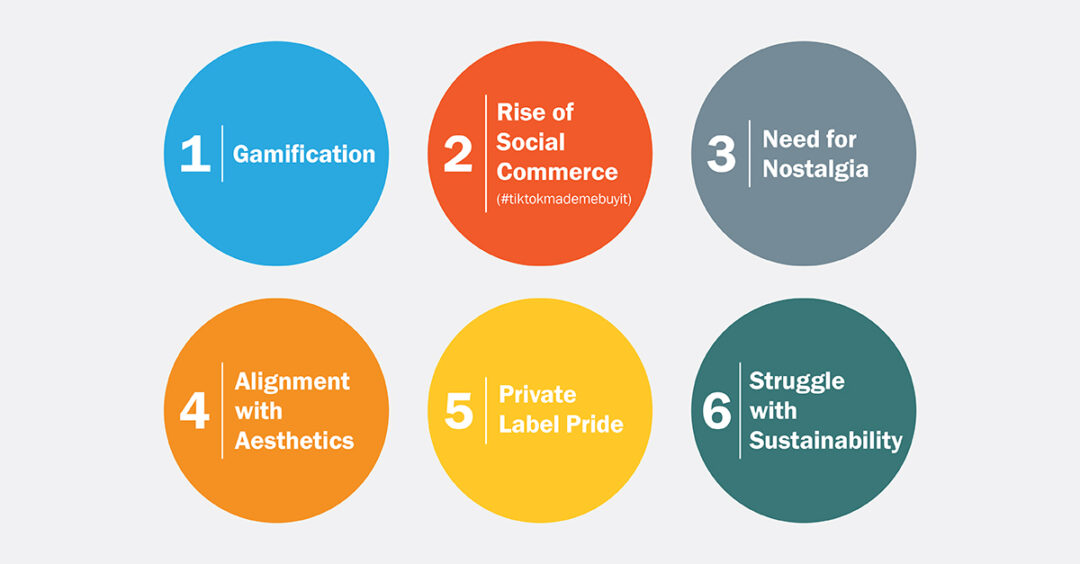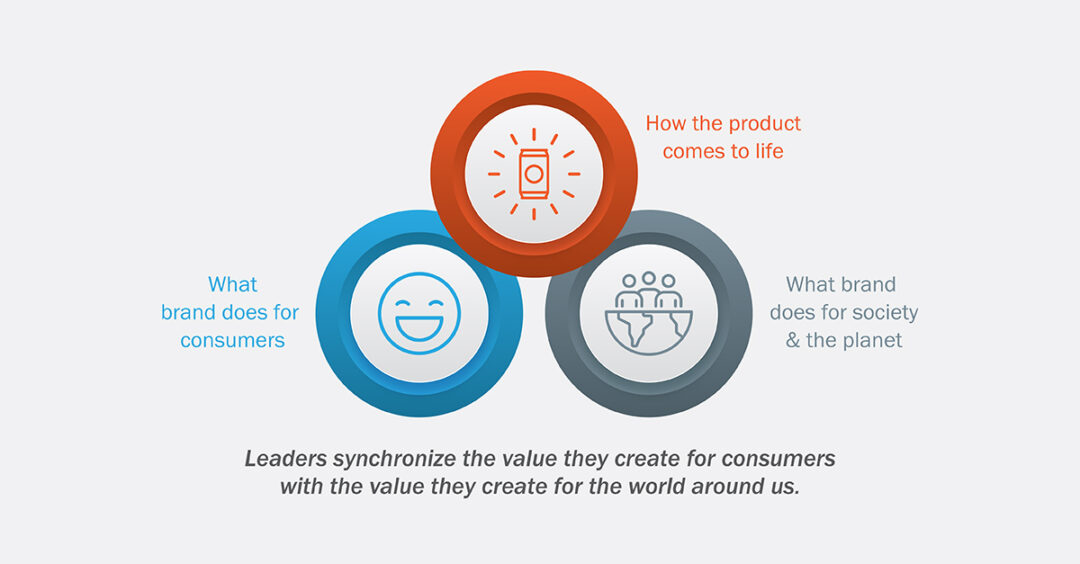The Power of Purpose: Harnessing Brands for Good
This comes as no surprise: Gen Z is inheriting a world riddled with challenges, and it seems everywhere you turn there’s a new data point proving how much they care about purpose. As EY aptly observes, “While the core issues that unite them vary from region to region, Gen Z is laser-focused on enacting change and taking action to achieve the future they desire for themselves and the world around them.” Once considered a nice-to-have, purpose is rapidly becoming an imperative for brands to grow with future generations. Even non-Gen Z consumers report that purpose significantly impacts purchasing decisions and loyalty. A recent study suggests consumers are four times more likely to support a brand with a strong purpose and six times as likely to stick by that brand in a challenging moment. The thing is, while it’s easy to declare a priority, purpose is challenging to execute well. Our experience suggests brands fall into one of three camps:
Laggards:
The worst offenders make thinly veiled attempts to take advantage of cultural conversation in a way that has little or no connection to their DNA. This manifests in inauthentic executions that ring hollow – for example, appropriating the rainbow during Pride Month or loudly praising female leaders on International Women’s Day while women remain woefully underrepresented on boards and in the top ranks of management.
Mainstream:
Most brands have admirably committed to doing good in a way that’s tied to the category in which they compete. Coffee and chocolate brands source ingredients in ways that are sustainable for people and planet. Apparel brands donate shoes or socks to people in need. This is good business, and we need these brands to continue their efforts.
Leaders:
A select few brands – and the focus of this paper – have managed to embrace purpose in a way that amplifies their core tenets. That is, their impact work is not just relevant to their category, but central to their brand promise. Consider this purpose marketing nirvana: complete harmony between what the product does for consumers and what the brand does for the world.


ByHeart
ByHeart is on a mission to build a future where all caregivers can feel amazing about feeding their babies – regardless of how they do it. The product itself is a clean-ingredient, USA-made, all-in-one infant formula that boasts a closest-to-breastmilk protein blend and removes the need to choose between functional benefits like brain or digestive health. Its online community cluster provides expert answers and advice for breastfeeding and formula feeding. And every purchase contributes to ByHeart’s Open-Hearted Initiative, which together with nonprofit Baby2Baby provides infant formula, nutritional education & other essentials resources to families who need it most – lessening the burden & worry for caregivers while advocating for change that makes feeding more equitable. To date, ByHeart has donated more than 160,000 feeds.

Fenty Beauty
Fenty Beauty is on a mission to make beauty accessible to all. The brand, founded by Rihanna, took the industry by storm in 2017 with “The Fenty 40,” its radically inclusive portfolio of foundations including skin tones that are historically harder to match. (The portfolio has since expanded to include over 50 shades.) Fenty’s 2022 Icon Lipstick campaign featured the tagline “Made to Be Seen,” elegantly weaving the product benefit with a message of inclusivity and inviting consumers (especially BIPOC) to stand tall and be seen. Fenty Beauty also has a long-standing partnership with the Clara Lionel Foundation, which has given more than $100M in grants across the Caribbean & is dedicated to supporting BIPOC communities. A pioneer of ultra-inclusive beauty, it has catalyzed “the Fenty Effect,” spurring other beauty brands to launch their own product lines that are not just inclusive of brown & black consumers, but truly designed for them.

Cotopaxi
Outdoor adventure gear brand Cotopaxi asserts that “adventure inspires people to see the world and make it better.” While its products are ideal for seeing the world, they clearly deliver on making it better, too: Cotopaxi gear is designed to create as little waste as possible, with 94% of products containing repurposed, recycled or responsible materials. By next year, 100% of their products will meet this standard. Cotopaxi’s brand promise goes beyond minimizing manufacturing waste and invites consumers to take part in the process. Their trade-in & repair program (Mas Vida) allows consumers to trade in old gear for gift cards, and the trade-ins are then repurposed and given new life, quite literally becoming part of the fabric of their next product. A delightful upshot of this process is that many products are unique: their beloved Kapai bags are made entirely from leftover fabric scraps, with local artisans deciding how to piece them together in the most interesting way.

Chewy
Pet e-tailer Chewy.com has a passion for pets. The website gives new and seasoned pet parents access to an endless supply of products and services designed to help pets lead happy, healthy lives. Optional subscriptions make pet parenting even easier by delivering everything from premium food to flea treatment and peepee pads right to your door. The brand shows up across touchpoints with warm, inviting visuals and small, personal touches that reinforce its identity as a trusted partner in pet parenthood. Not surprisingly, the brand is also active in philanthropic efforts, donating essentials to rescues and facilitating adoptions to connect pets with loving homes. To date Chewy has donated more than $180MM in pet products to ensure shelter and rescue animals get the quality care they deserve.

Melissa & Doug
Toy manufacturer Melissa & Doug is on a mission to make the world a better place for children through the power of play. In a world of screens and dwindling attention spans, Melissa & Doug toys are 100% screen-free & designed to spark imagination. Beyond providing obvious social and emotional development benefits, the portfolio famously includes wooden toys that are longer-lasting and biodegradable. Melissa & Doug’s approach to philanthropy thoughtfully centers around creating more opportunities for open-ended play among children who might otherwise lack them: to date they’ve donated over 5,000 screen-free toys to pediatric patients & family support centers, contributed over 500 volunteer hours to causes dedicated to helping children thrive (from stocking backpacks to hosting food drives), and given directly to charitable organizations that assist children in unstable environments.

Blueland
Blueland’s mission is to make it “easy to be eco,” focusing primarily on eliminating single-use plastic from our oceans and landfills. The portfolio includes pods of dish, laundry and toilet cleaning products designed to be used the same way as conventional products but without the plastic. As CEO & co-founder Sarah Paiji Yoo says, “we work tirelessly to remove barriers to using our products and ensure they’re just as effective as they are convenient. No one should have to sacrifice a clean home for a clean planet.” Blueland educates consumers about going green not only by proving its products are highly effective, but also by publishing practical tips for sustainable living. The brand is highly involved in activism, with Paiji Yoo playing a key role in initiatives like Amazon’s plastic-free shipping pilot and recent legislation banning plastic pods in New York City.

Cora
Cora’s mission is to make period care accessible to all – inspired by the belief that every body deserves comfort. This belief manifests in products like 100% organic cotton tampons and pads, and in its portfolio of reusables, including discs, cups and period underwear. As a B corp, the company meets the highest standards of verified social and environmental performance, public transparency, and legal accountability. And with each purchase, Cora donates period products and body literacy resources to people who might otherwise go without. As CMO Dana Cohen notes, “Our giving mission is important to our customers, but also to our employees, who feel like we’re making a difference. To date, the brand has donated 24MM products, with 75% of domestic giving dedicated to BIPOC communities.

KIND
KIND Snacks is committed to creating a kinder and healthier world – one act and one snack at a time – with a brand promise that includes being kinder to our bodies, our communities and our planet. ‘Bodies’ involves a commitment to wholesome, low-glycemic snacks with high-quality, recognizable ingredients and no artificial sweeteners or sugar alcohols. ‘Communities’ includes local service and a project connecting companies with frontline institutions in need of various qualify of life goods. ‘Planet’ includes initiatives like the Almond Acre Initiative, a pilot program whose goal is to source 100% of almonds from farms leveraging regenerative farming techniques, as well as pollinator advocacy. These three pillars create a cohesive brand promise that reinforces the relationship between how we treat ourselves, others and the world around us.

Applegate Farms
Applegate Farms, LLC is focused on ‘Changing the Meat We Eat®’ by developing a holistic system that connects the health of humans, animals and the planet. The idea is simple: make products that taste good and do good by committing to a future in which meat is produced responsibly, with no antibiotics – ever – and a focus on humane treatment of animals. To date Applegate has raised 12MM animals in higher welfare conditions and provided craveable protein free from 700 prohibited ingredients. They’ve made significant donations to nonprofits and prevented nearly 700,000 pounds of harmful chemicals from entering our waterways. Next up is embracing regenerative agriculture: Applegate has committed that by 2025, 100% of their beef hot dogs will be sourced from certified regenerative farms. Senior Director of Mission & Advocacy Carolyn Gahn notes that to hold itself accountable, as of 2023 the company publishes an annual mission report measuring progress against its Mission Standards Index, which includes people, environmental sustainability, ingredient integrity and animal welfare.

Harmless Harvest
Harmless Harvest is working toward a future where coconut agriculture has a net positive impact on our climate. The connective tissue is replenishment: coconut water (and the brand’s other coconut-based products, like yogurt) provide electrolyte-rich hydration that replenishes the body, and the commitment to regenerative coconut farming is designed to replenish the planet. Harmless is loyal to the Nam Hom coconut, sourcing from organic certified farms in Thailand, where the company is headquartered and where its investment translates to new school uniforms, water filtration systems and mobile medical trucks for preventative healthcare in local communities. While there’s still work to be done, there are already demonstrable benefits to the ecosystem, soil, crop yield, farmer income and end product.
If you’re interested in rethinking your brand purpose, we’d love to continue the conversation. Please reach out at info@seuratgroup.com.


